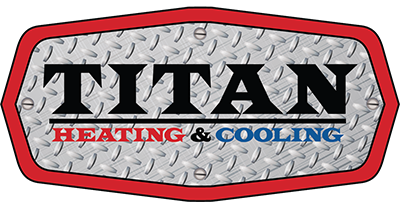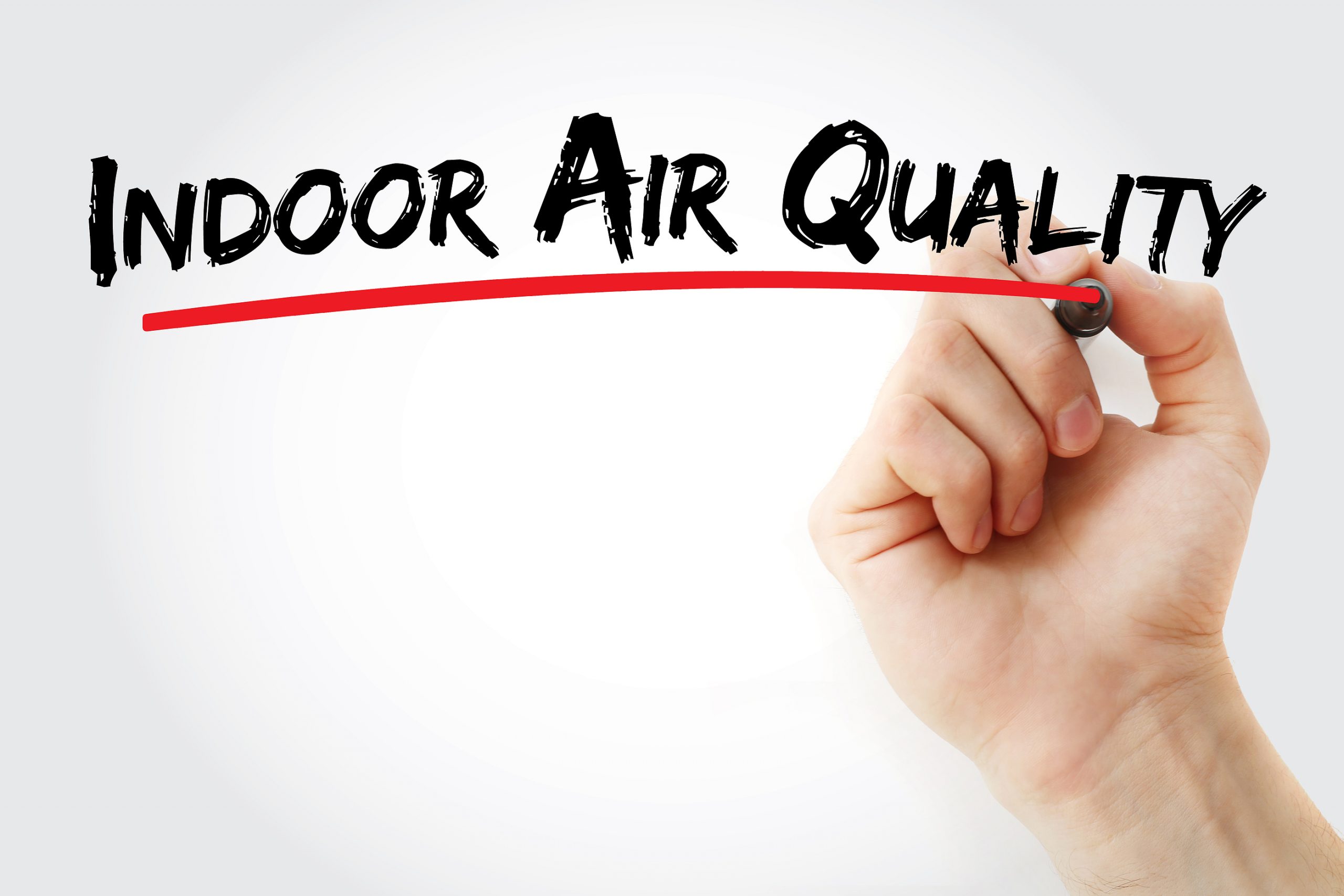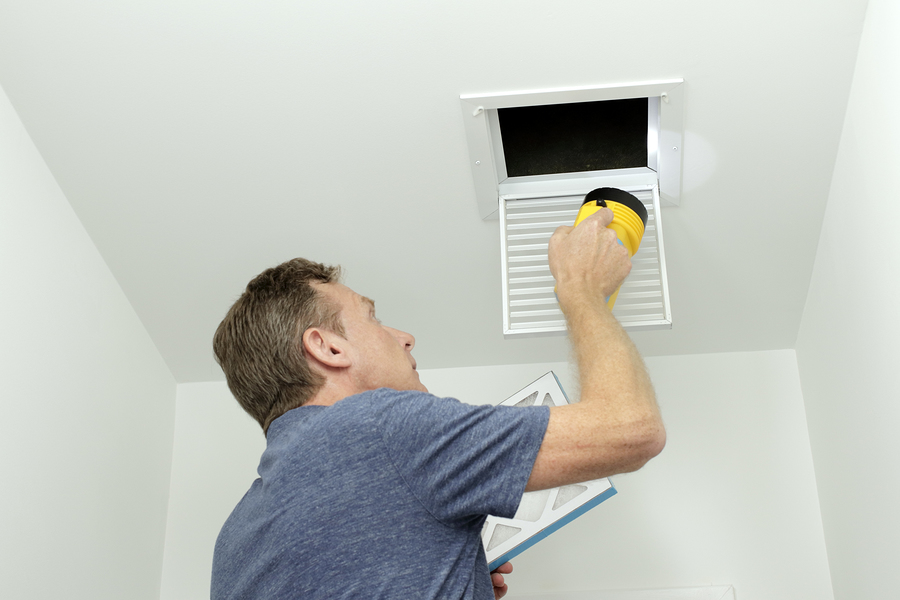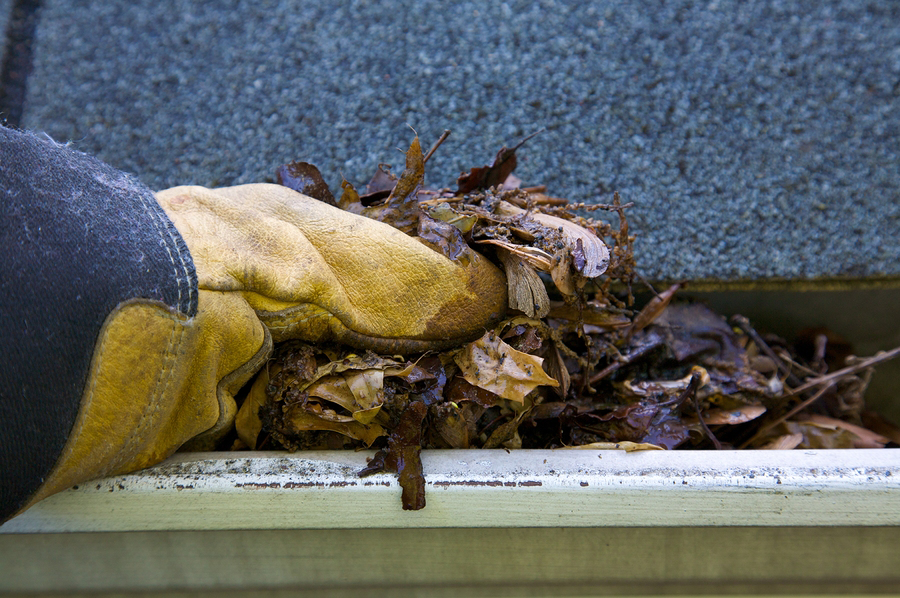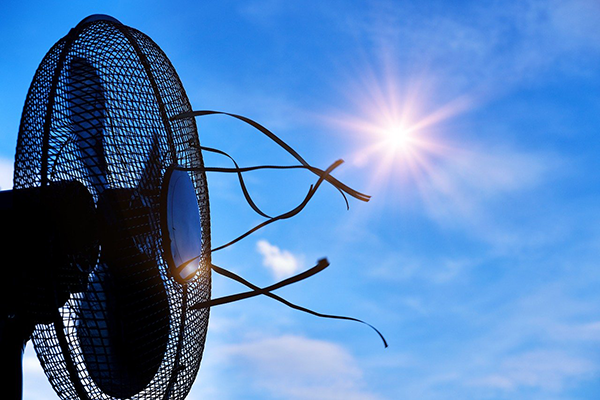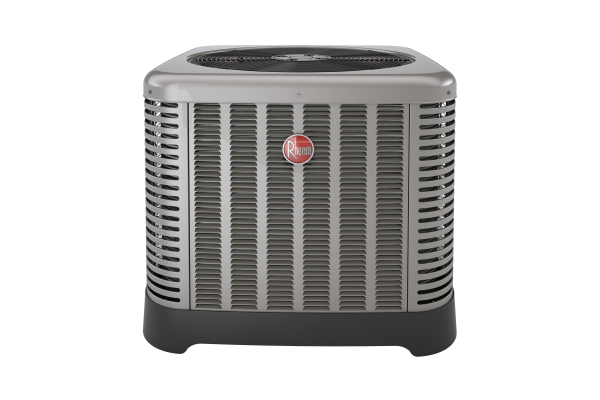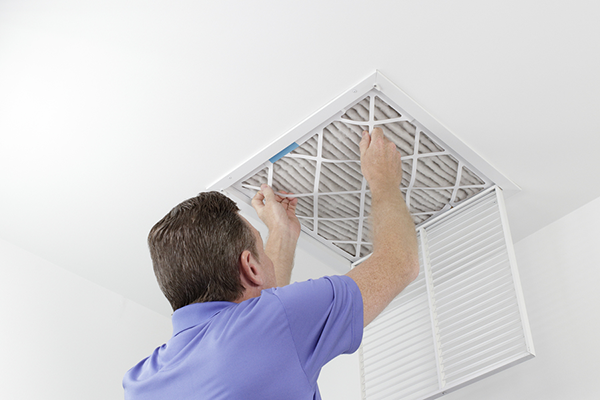Managing the humidity level in your home is an under-discussed facet of maintaining good indoor air quality. When the humidity in your home is either too high or too low, it can degrade the quality of your air, leading to damage to your home and your belongings as well as negative health effects for you and your family. Humidity control through the use of a humidifier or dehumidifier helps balance your home’s humidity levels for better indoor air quality. Ideal Indoor Humidity Levels Humidity is the amount of water vapor in the air. Relative humidity is the percentage of water vapor in the air at a given temperature compared with the maximum amount of water vapor the air can hold at that temperature. When we talk about indoor humidity levels, we are using a measure of relative humidity. Ideally, humidity levels in your home should be between 35 and 60%. This is the sweet spot for comfort level as well as for healthy indoor air quality. Outside of this range, your home will feel less comfortable and you will begin to notice the effects of poor indoor air quality on your health. How Does Humidity Affect Air Quality? Humidity levels affect how warm or cool your home feels. In the winter, when the air dries out due to drier outdoor air and running your heating system, low humidity can make your home feel colder, even when your thermostat is set at an otherwise comfortable temperature. The higher the moisture content in the air, the warmer your home will feel. Additionally, bacteria and viruses that cause respiratory illnesses thrive in environments with significantly high or low humidity levels. High humidity can also increase the prevalence of mold, dust mites, and other allergens in your home. These things can have a significant impact on your home’s air quality and your family’s health and wellbeing. Health Effects of Low and High Humidity Both extremely low and extremely high indoor humidity can negatively affect your health. Low Humidity When your home’s humidity levels are balanced, moisture in the air weighs down particles of bacteria, viruses, and other pollutants, causing them to fall. But when humidity in your home is low, the drier air allows these particles to move more freely throughout your space. The less moisture there is in the air, the more freely the particles can circulate. Low humidity can cause: Dry skin, rashes, and infectionsChapped lipsItchy eyes and noseDry sinuses and throatDry coughNosebleedsWorsened asthma symptomsand more In addition, dry mucous membranes in the sinuses can make it more difficult for your body to fight off the germs that cause colds, flu, and other respiratory illnesses. Improving your indoor air quality by balancing your home’s humidity levels can help control the spread of infectious diseases. High Humidity On the other end of the spectrum, high indoor humidity can also cause negative health issues, such as: Growth of mold and mildewIncreased prevalence of dust mitesSinus stuffinessDifficulty breathingHeadachesEye irritationSkin irritationAggravated asthma symptoms In addition, high humidity can make warm temperatures feel even warmer, leading to heat-related illnesses like heat rash, heat exhaustion, or even heat stroke. Benefits of Home Humidity Control Luckily, the majority of adverse health effects caused by extreme levels of humidity can be minimized through humidity control. When your home’s humidity levels are kept within the ideal range, you will experience: Healthier skinA more comfortable sleeping environmentReduction in dry, scratchy throat, eyes, and sinusesImproved asthma symptomsReduced risk of airborne illness transmissionAnd many more health and wellness benefits Controlling the humidity in your home is as simple as installing a humidifier or dehumidifier, depending on your needs. At Titan, we install Aprilaire whole-house humidifiers and Ultra-Aire whole-house or free-standing dehumidifiers. Installing a whole-house humidifier or dehumidifier...
Read MoreWhy Fall Is the Best Time to Schedule HVAC Maintenance In the height of summer, we’re all too busy enjoying the fun and sun to worry about the state of our HVAC systems. But as the calendar turns to fall and the air becomes crisp, it’s time once again to get your HVAC ready for another heating season. It’s important to have your HVAC system maintained regularly — at least once a year — to ensure it functions properly and to catch any potential issues before they cause problems. Fall is the best time of year to schedule your HVAC maintenance: here’s why. Be Prepared For the Colder Months To Come Scheduling your routine maintenance for the fall means you can get both your heating and cooling systems checked so they are ready to go when you need them next. That means your A/C unit will be ready for next year and your heating system will be ready to switch on the moment the chill of winter hits the air. Fall is the ideal time to schedule your HVAC maintenance — when you likely don’t need to use your A/C anymore and it’s not quite cold enough to turn the heat on yet. This means you can stay comfortable while we give your heating and cooling systems the attention they need. Ensure Clean Indoor Air Did you know that your HVAC system not only keeps you cool in the summer and warm in the winter, but also helps keep your indoor air supply clean and safe? As temperatures cool down this fall and we spend more time inside with the windows closed, indoor air quality is more important than ever. Without regular maintenance, dust and debris can build up in your system, negatively affecting the quality of your home’s air supply. Fall HVAC maintenance will ensure your system is in top condition to keep your air clean and fresh all winter long. In addition, you should be changing your system’s air filter every 1-3 months, depending on how often you run your HVAC system. Prevent Carbon Monoxide Poisoning and Other Safety Concerns When even small HVAC problems go unnoticed, they can turn into bigger issues, meaning costly repairs or even safety concerns. One of the biggest safety issues to watch for when it comes to your heating and cooling systems is carbon monoxide poisoning. Carbon monoxide poisoning is no joke — it sends 50,000 people to the emergency room each year in the U.S. Carbon monoxide is more of a concern during the winter than the rest of the year, as it is a byproduct of incomplete fuel combustion. Malfunctioning furnaces, along with leaky chimney flues and gas lines, are common sources of carbon monoxide. Having your heating and cooling system maintained each fall means you won’t have to worry about safety issues like carbon monoxide poisoning, gas leaks, or other dangers throughout the heating season. Leave Plenty of Time for Furnace Repairs or Replacement Routine preventive maintenance helps extend the life of your HVAC system and avoid costly repairs. But when you do need repairs, it’s better to find out in the fall than in the middle of winter. By scheduling your HVAC maintenance in the fall, you’ll have time to get any issues taken care of before you need to turn your furnace on for the winter season. Plus, most HVAC professionals have more availability in the fall, so scheduling is much easier. Improve Efficiency and Reduce Utility Bills Regular wear and tear can strain your heating system. When you do not maintain your HVAC system properly, dust, dirt, and debris can gather within your unit, forcing it to work harder to heat your home. This...
Read More[vc_row][vc_column][qodef_custom_font font_family="Archivo" font_size="60px" line_height="70px" font_weight="700" text_align="left" content_custom_font="6 Reasons to Invest in Professional Duct Cleaning" color="#000000"][vc_empty_space height="20px"][vc_column_text] The buildup of dust, mold, and other allergens in your home’s ductwork can have an effect on your family’s health and the health of your heating and cooling systems. Removing contaminants from your HVAC system will greatly reduce these effects and lead to cleaner air in your home, among other benefits. Here are our top 6 reasons to invest in regular professional duct cleaning. 1 - Allergies Bacteria, mold, fungi, and other allergens can grow in the tight spaces of your air ducts. Pet fur, dander, dust, and dust mites can also build up in your system. Since the air in your home is circulated through your air ducts several times a day, this buildup can aggravate allergy symptoms. Regular duct cleaning can provide significant relief to family members with allergies. 2 - Mold Since most HVAC systems are located in the basement of the home where moisture levels are highest, it’s likely for mold to be present in your air ducts. The likelihood is even higher if your basement has been damp, flooded, or otherwise water damaged in the past. 3 - Dust When you dust your home, but find that it’s dusty again within a few days, that could be an indication that your ducts need to be cleaned. Regular professional duct cleaning will result in your home staying dust-free for longer periods of time. 4 - Odors Dust in your air ducts collects the smells of food, smoke, cleaning products, pets, and more. As your HVAC system circulates the air through your home throughout the day, all of your home’s odors will circulate as well. Clean duct work means fresher-smelling air. 5 - Pest Infestation There are many reasons to avoid a pest infestation in your ductwork, not the least of which being that insects and rodents leave droppings and other materials that harm the air quality in your home. Pests love dirty ductwork - keeping your system clean will discourage them from gathering there. 6 - Efficiency The buildup of dirt and debris in your ductwork can hinder your HVAC system’s airflow, causing it to work harder to keep your home at a comfortable temperature. This excess strain can lead to higher energy bills, as well as more frequent repairs and a shorter lifespan for your system. Having your ductwork regularly inspected and serviced will result in cleaner air circulating through your home and a more efficient, longer-lasting HVAC system. Find more information on Titan Heating & Cooling air duct cleaning services here, and give us a call to schedule your next cleaning - 651.714.8931. [/vc_column_text][/vc_column][/vc_row]...
Read More[vc_row][vc_column][qodef_custom_font font_family="Archivo" font_size="60px" line_height="70px" font_weight="700" text_align="left" content_custom_font="Spring Maintenance Tips To Protect Your Homes Value" color="#000000"][vc_empty_space height="20px"][vc_column_text] If the thought of spring cleaning makes you long for winter, it’s time to think about these annual chores in a new way. By dedicating just a few days to complete these simple tasks, you will keep your home running smoothly and protect your investment at the same time. Inside your home • As the weather gets warmer, it’s important to ensure your windows are in good working condition. Inspect all windows for proper operation and a tight fit. Clean the window tracks and check that the weatherstripping hasn’t cracked or torn. Preventing unwanted outside air from leaking into your home also will reduce your energy bills. • Remember, open windows can be hazardous, especially to young children. Screens are designed to keep insects from getting into a home, not to prevent a child from falling. Parents need to take action to reduce the potential risks of accidental falls from windows. • Have your air conditioning system inspected and cleaned. If your system has a filter, replace it every three months to keep your unit working efficiently. • Warmer weather also means that pests — including ants, roaches, rats, and termites — will be looking to join your household. Keep them out by sealing cracks and openings along baseboards, behind sinks and around pipes and windows. And, repair holes in door and window screens. Outside your home • Check the condition of glazing compound, caulking and exterior paint. Replace or paint as needed. • Exchange glass and screens in storm doors and/or windows. Ensure the screens are clean by washing gently with soapy water. • Inspect your roof for snow damage. • To prevent outside pests from entering your home, look for cracks and holes on the outside of your home and seal them up. Be sure to include points where utility lines enter the house. Also address damage to the basement foundation and windows. • Check for evidence of termites such as sagging floors and ceilings or dry, brown tunnels in the ground near the home’s foundation. • Seed and feed the lawn and plant annuals, cut back perennials that need pre-growth pruning. • Clean your gutters of debris. Yes, you have to do this in the fall and the spring. Long winters bring a mix of storms and heavy winds that can carry a lot of debris to your gutters. Remember, focusing on these small jobs now will save you time and money in the future. For more information about home maintenance, contact the Home Builders Association of Middle Tennessee (HBAMT) online at www.hbamt.org, or visit the National Association of Home Builders (NAHB) at www.nahb.org/forconsumers. Trey Lewis is president of the Home Builders Association of Middle Tennessee. [/vc_column_text][/vc_column][/vc_row]...
Read More[vc_row][vc_column][qodef_custom_font font_family="Archivo" font_size="60px" line_height="70px" font_weight="700" text_align="left" content_custom_font="Titan Heating And Cooling Tips" color="#000000"][vc_empty_space height="20px"][vc_column_text] Heating and cooling your home uses more energy and costs more money than any other system in your home — typically making up about 48% of your utility bill. No matter what kind of heating and cooling system you have in your house, you can save money and increase your comfort by properly maintaining and upgrading your equipment. But remember, an energy-efficient furnace alone will not have as great an impact on your energy bills as using the whole-house approach. By combining proper equipment maintenance and upgrades with recommended insulation, air sealing, and thermostat settings, you can save about 30% on your energy bill while reducing environmental emissions. HEATING AND COOLING TIPS Set your programmable thermostat as low as is comfortable in the winter and as high as is comfortable in the summer, and — depending on the season — raise or lower the setpoint when you’re sleeping or away from home. Clean or replace filters on furnaces and air conditioners once a month or as recommended. Clean warm-air registers, baseboard heaters, and radiators as needed; make sure they’re not blocked by furniture, carpeting, or drapes. Eliminate trapped air from hot-water radiators once or twice a season; if unsure about how to perform this task, contact a professional. Place heat-resistant radiator reflectors between exterior walls and the radiators. Turn off kitchen, bath, and other exhaust fans within 20 minutes after you are done cooking or bathing; when replacing exhaust fans, consider installing high-efficiency, low-noise models. During winter, keep the draperies and shades on your south-facing windows open during the day to allow the sunlight to enter your home and closed at night to reduce the chill you may feel from cold windows. During summer, keep the window coverings closed during the day to block the sun’s heat. LONG-TERM SAVINGS TIPS Select energy-efficient products when you buy new heating and cooling equipment. Your contractor should be able to give you energy fact sheets for different types, models, and designs to help you compare energy usage. For furnaces, look for high Annual Fuel Utilization Efficiency (AFUE) ratings. The national minimum is 78% AFUE, but there are ENERGY STAR® models on the market that exceed 90% AFUE. For air conditioners, look for a high Seasonal Energy Efficiency Ratio (SEER). The current minimum is 13 SEER for central air conditioners. ENERGY STAR models are 14.5 SEER or more. [/vc_column_text][/vc_column][/vc_row]...
Read More[vc_row][vc_column][qodef_custom_font font_family="Archivo" font_size="60px" line_height="70px" font_weight="700" text_align="left" content_custom_font="Tips: Air Conditioners" color="#000000"][vc_empty_space height="20px"][vc_column_text] Buying a bigger room air conditioner won’t necessarily make you feel more comfortable during the hot summer months. In fact, a room air conditioner that’s too big for the area it is supposed to cool will perform less efficiently and less effectively than a smaller, properly sized unit. The reason: an oversized unit will cool the room(s) to the thermostat set-point before proper dehumidification occurs, making the area feel “clammy” and uncomfortable. Central air-conditioning systems need to be sized by professionals. Explore our Energy Saver 101 infographic on home cooling to learn how an air conditioner works. If you have a central air system in your home, set the fan to shut off at the same time as the compressor, which is usually done by setting the “auto” mode on the fan setting. In other words, don’t use the system’s central fan to provide air circulation — use circulating fans in individual rooms. Instead of air-conditioning, consider installing a whole-house fan. Whole-house fans work in many climates and help cool your home by pulling cool air through the house and exhausting warm air through the attic. Use the fan most effectively to cool down your house during cooler times of the day: your home will stay cooler through the hotter times of the day without using the fan. COOLING TIPS • Set your thermostat at as high a temperature as comfortably possible in the summer, and ensure humidity control if needed. The smaller the difference between the indoor and outdoor temperatures, the lower your overall cooling bill will be. • Avoid setting your thermostat at a colder setting than normal when you turn on your air conditioner. It will not cool your home any faster and could result in excessive cooling and, therefore, unnecessary expense. • Consider using an interior fan along with your window air conditioner to spread the cooled air through your home without greatly increasing your power use. • Avoid placing appliances that give off heat such as lamps or TVs near a thermostat. LONG-TERM SAVINGS TIPS • If your air conditioner is old, consider buying an energy-efficient model. Look for the ENERGY STAR® and EnergyGuide labels — qualified room air conditioners are 10% more efficient, and qualified central units are about 15% more efficient than standard models. • Consider installing a whole-house fan or evaporative cooler if appropriate for your climate. [/vc_column_text][/vc_column][/vc_row]...
Read More[vc_row][vc_column][qodef_custom_font font_family="Archivo" font_size="60px" line_height="70px" font_weight="700" text_align="left" content_custom_font="Duct Cleaning & Dryer Vent Cleaning" color="#000000"][vc_empty_space height="20px"][vc_column_text] Duct Cleaning and Dryer Vent Cleaning – Titan Heating and Cooling is your most competitive source for Duct Cleaning and Dryer Vent Cleaning! This service pays for itself with immediately improved energy efficiency! [/vc_column_text][/vc_column][/vc_row]...
Read More[vc_row][vc_column][qodef_custom_font font_family="Archivo" font_size="60px" line_height="70px" font_weight="700" text_align="left" content_custom_font="Check This Before Calling For Air Conditioner Service" color="#000000"][vc_empty_space height="20px"][vc_column_text] Titan Heating and Cooling is your most competitive source for Duct Cleaning and Dryer Vent Cleaning! This video shows you some things you can check before calling your air conditioning repair company. [/vc_column_text][vc_empty_space height="20px"][vc_video link="https://www.youtube.com/watch?v=PO8GBe-TEWo&feature=emb_logo " el_width="70" align="center"][/vc_column][/vc_row]...
Read More[vc_row][vc_column][qodef_custom_font font_family="Archivo" font_size="60px" line_height="70px" font_weight="700" text_align="left" content_custom_font="Four Best Days Of Summer Are Back!" color="#000000"][vc_empty_space height="20px"][vc_column_text]MINNEAPOLIS (WCCO) — The four best days of summer? That’s the new plan announced Friday for the Aquatennial. Big changes have been made to the Minneapolis festival. Instead of 10 days, it will now run for four, and some of the Aquatennial’s most popular beach events have been cut. In a way, the weather fit the mood on Lake Calhoun Friday when news broke that its banks won’t host a Minneapolis favorite. In the London house, it was especially hard for some of last year’s sandcastle winners to hear the competition won’t be back. “It’s a big disappointment,” Annique London said. “We had a ton of fun, learned a lot about building sandcastles and ended up taking third place in our category.”[/vc_column_text][/vc_column][/vc_row]...
Read More
